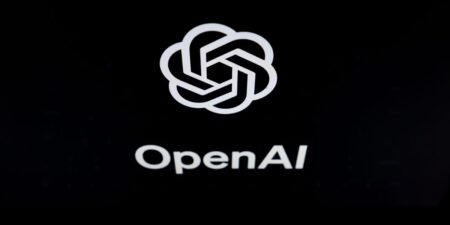This as-told-to essay is based on a transcribed conversation with Jennifer Dulski, the CEO of Rising Team, from the San Francisco Bay Area. The following has been edited for length and clarity.
I’ve held several leadership positions in Big Tech. I was the director of product management for Google Shopping from 2011 to 2012, and head of groups and community at Facebook in the late 2010s. Now, I run my own leadership coaching software company.
I don’t subscribe to the narrative that younger generations lack key skills. As a lecturer at Stanford Graduate School of Business, teaching early-career students about management, I’m always really impressed with my students.
When I consider what it takes for early-career people to succeed inside big companies, I think it’s more important to focus on soft skills. The hard skills you might need change so quickly that you can’t make a list, but soft skills are the real needle-movers to a career.
Skills like adaptability, relationship-building, and taking initiative helped me in my early career and are essential for young professionals to grow their careers and become good leaders.
Adaptability is important, particularly in Big Tech
My tech career began in 1998 with an internship at Yahoo. I joined full-time in 1999 in the marketing org, where I worked my way up. If I think about what helped me climb the ranks in my career, the first piece was adaptability.
The phrase, “the only constant is change,” is a cliché for a reason. Things change so often.
My career started when the internet was nascent. Messaging, mobile, streaming, and now AI have become part of our work and personal lives. I needed to adapt to new market products and what was being asked of me in my role.
In Big Tech, there are constant reorganizations. Macroeconomic changes like tariffs and trade can influence large companies to change their strategies or sometimes lay off employees. To succeed inside these companies, you have to be adaptable.
At one point during my time at Yahoo, I switched roles. Listening to and learning from the people around me was key. I asked to sit in on meetings with other teams so I could understand more about our core audience and adapt quickly to the new role.
There are sister skills to adaptability that can help
One is learning agility. If you can learn quickly, you can adapt faster. AI could change everything about work. The people who are actively trying to learn and use AI will be the most adaptable.
Don’t wait until your company says you need to learn AI and offers you training. There’s lots of free training available, just go do it. Early on, I taught myself HTML by practicing coding web pages. Learning to speak the language of the engineers I worked with helped me advance in my career.
Another important sister skill is relationship-building. When you get to know your colleagues as human beings, it’s much easier to adapt to big changes, because you have a support network within your company.
Relationships can also help as you’re climbing the ranks at a company. Early in my tech career, I developed relationships with engineers in my office because I wanted to get to know them. I remember wanting to test a hypothesis and needed a technical colleague to build a process to test it.
When I needed help, I could go to someone I already knew and ask. I was able to show executives what we built together, helping both of us advance our careers.
Take initiative
Sometimes, people early in their careers believe they need permission to do something, like bring up a big idea.
The most successful people in large companies are what I call hand-raisers. They see things that need to be done and think, “How can I help?” These people will often be given more responsibility faster because they take initiative.
Early in my career, a colleague and I had an idea to boost sales between holiday peaks. We pitched the idea to senior leadership, got the green light, and successfully executed the plan. This earned us the right to continue pitching big ideas.
I really encourage people to bring creative ideas or recognize where pain points are and volunteer to help, even in junior roles.
You can learn the hard skills that you need at any given time
I started my career in marketing, and I’ve worked in commerce, then marketplaces, then social impact, and now I run a SaaS company. To navigate a career like mine that has so many varied elements, focusing on soft skills — the things that aren’t specific technical skills — is really important.
I’ve learned hard skills like reading a balance sheet. I do use this skill as the CEO of a company, but it’s not what’s helped me advance in my career. It’s been a check-the-box skill and not a needle-mover.
Soft skills are those needle-movers. They’re more valuable in the long-term and are necessary complements to the hard skills. Right now, AI is a hard skill that I believe people should absolutely be learning. But even if you learn it today, tomorrow there might be something else you need.
Adaptability and the ability to learn quickly are way more important than any given hard skill you will learn.
Do you have a story to share about being a leader in your industry? Contact this reporter at [email protected].
Read the full article here
















